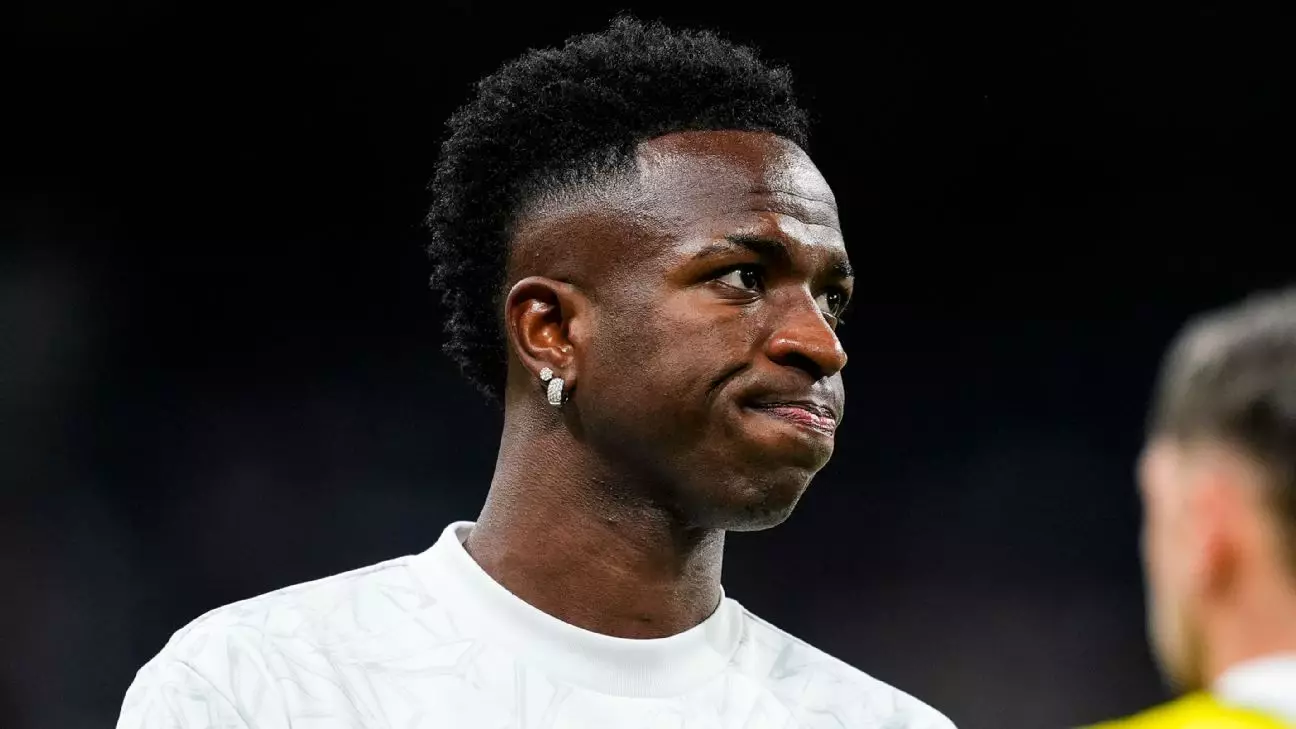The annual Ballon d’Or ceremony, a prestigious event celebrating the world’s best footballers, has once again become a point of contention. This year, the spotlight seems to be on Manchester City’s standout midfielder Rodri, who many anticipate will secure the coveted accolade. However, for Real Madrid’s Vinícius Júnior and his teammates, the decision to boycott the ceremony in Paris speaks volumes about their sentiments regarding the award’s fairness and legitimacy.
At just 24 years old, Vinícius Júnior had an exceptional season that included a LaLiga and Champions League double with Real Madrid. Scoring 15 goals in the domestic league and another six in the Champions League, including crucial strikes in the semifinals and finals, he appeared to be a frontrunner for the award. His remarkable performance not only showcased his immense talent but also positioned him as a symbol of hope for Brazilian football, aiming to reclaim a title last held by compatriot Kaká in 2007.
Despite Vinícius’s commendable achievements, sources have revealed a growing frustration among the Real Madrid camp. Their absence from the Ballon d’Or ceremony is not simply a personal choice; it is a protest against what they perceive as an injustice in the footballing landscape. Some insiders describe the situation as “a historic robbery,” underscoring their belief that Vinícius deserved to be recognized for his contributions. The decision to forgo the event signals a strong statement from the team about their dissatisfaction with the award’s selection process.
The Broader Implications
This year’s awards carry additional complexity due to the presence of other distinguished nominees from Real Madrid, such as Jude Bellingham and Kylian Mbappé, alongside coach Carlo Ancelotti. The collective decision to boycott casts a shadow over the legitimacy of the awards, suggesting that the process may not adequately recognize players’ true potential and performance. Vinícius’s protest can also be seen as an indictment of how awards like the Ballon d’Or may sidestep insightful narratives about player contributions in favor of more marketable stories.
While the awards are designed to reward excellence, the growing disparity between individual achievements and recognition raises questions about the criteria used in determining the winners. As football continues to evolve, the concerns voiced by Vinícius and Real Madrid might prompt a broader conversation around transparency in award adjudication. Their absence from the ceremony is reflective not only of their personal convictions but also of an ongoing struggle for recognition in a sport where the spotlight can sometimes shine unjustly on certain players.
In the world of football, awards carry immense significance, not just for the players but for national pride and legacy. Vinícius Júnior’s decision to boycott the Ballon d’Or ceremony exemplifies the deep frustration felt within parts of the football community regarding the selection process. As debates continue around fairness and recognition, it remains to be seen whether this incident will encourage a reevaluation of how such awards are distributed, emphasizing that performance should ultimately dictate recognition, not mere popularity.
